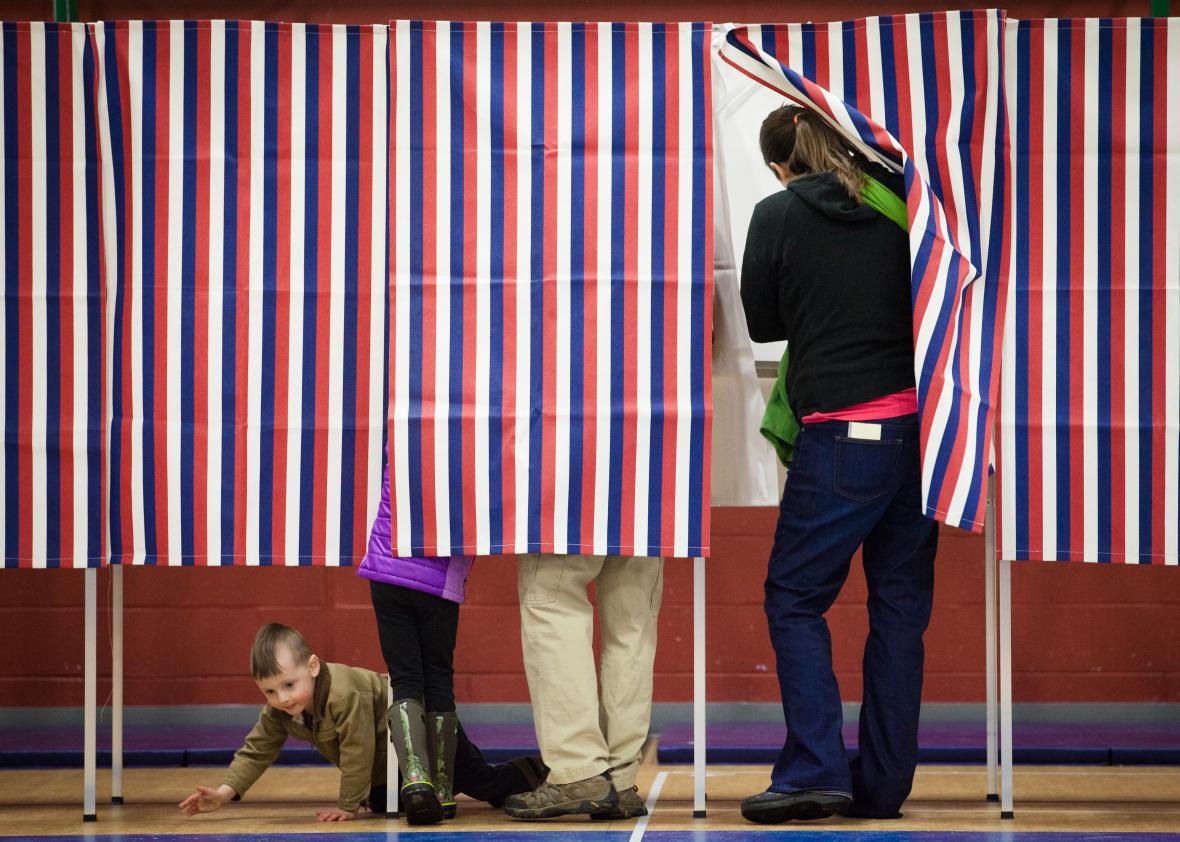As Liz Nagy reported for Chicago’s ABC 7 News, “A record-breaking 29,968 people early voted in Cook County on Friday, surpassing a single-day turnout record set during the 2008 November presidential election.” Nagy’s report doesn’t just highlight that a historic number of Americans voted early this election, though. It also underscores that more and more of us are early voting—that is, using the noun phrase early voting as a verb.
Consider some other recent examples. Indiana’s WISH-TV headlined an article by Tim McNicholas: “Hoosiers Waiting Hours to Early Vote After Huge Turnout.” On the NPR Politics podcast, Asma Khalid commented on the Clinton campaign in the finals days before Election Day: “They have had a laser-like focus. … She’s been going to all those states where people had already been early voting for the past couple of weeks.” And on social media, voters are snapping selfies with their “I voted” stickers, proudly adding a lexical twist: “I early voted!”
Though the use of early vote as a verb has spiked this election, it isn’t entirely new. In 2005, for instance, Jesse Clausen, an Oglala Lakota tribal member, was freely using early vote as a verb in a hearing before the National Commission on the Voting Rights Act. Nor is early vote a unique linguistic phenomenon: It’s an example of a word-formation process known as back-formation. Back-formation fashions a new word from an existing one, typically by stripping away a suffix. While the term may be unfamiliar to nonlinguists, back-formation has generated a number of familiar words. Edit was derived by dropping the -or from editor as early as 1791, according to Oxford English Dictionary. Donate was back-formed by 1845, with the -ion clipped from donation and an -e fixed on to fit the pattern of other English verbs like take or imitate. Execute, grovel, kidnap, and vaccinate are some other everyday back-formations, as writer and copy editor Stan Carey has noted. And while back-formation commonly yields them, verbs aren’t the exclusive product of this linguistic process: sleaze, for instance, was a new noun cut from the adjective sleazy.
Many back-formations, as we see with donate, involve one step: A word ending is pared from one word to make another. But other back-formations, like early voting, are more complicated, as Arnold Zwicky observes. To put it simply, speakers reordered the verb phrase to vote early and fashioned it into the noun phrase early voting. (It’s worth noting here that absentee voting, which dates in word and practice to the Civil War, was likely a direct model for the noun phrase early voting, itself firmly settled into the lexicon by the 1990s.) So ensconced was early voting as a single, unitary concept that we easily manipulated it into other parts of speech, including the agent noun early voter, the adjectival the early vote count, and, of course, the back-formed verb early vote.
This back-formation of words like early vote follows a larger trend toward phrasal, back-formed verbs in the English language. Business discourse features many notable examples. At a meeting, colleagues set out to problem-solve declining sales figures. At a conference, professionals seek to relationship-build with other colleagues. Recruiters headhunt new talent. A hiring manager wants new staff who know how to critical think and time-manage a project. A company price-matches the competition. Entrepreneurs thought-lead breakthrough ideas. And aside from to early vote, political discourse has also given us: to absentee vote, to same-sex marry or gay marry, to conceal carry a gun, and to be exit-polled. On Twitter, some users, though often in jest, have even back-formed to voter intimidate from voter intimidation.
Is there a larger reason behind the apparent growth in back-formed verbs like early vote? Perhaps, in this Information Age, our language is a technical one, crammed with ever-specific phrases for all the novel and niche concepts we’re starting up in our brave new world. Or maybe in the modern, post-industrial economy, our speech is more bureaucratic and technocratic, resorting to stuffy, Latinate jargon for all of our semantic red-tape. But back-formations like to early vote, and its kin, are also just expressing the very DNA of the English. Like the process of compounding, which we use to create new such new words as humblebrag. Or functional shifts, like when we turn the verb ask into a noun, an ask. Or just plain old economy, as it can be easier to say I want to window-shop than I want to go window-shopping—and people still understand what we’re saying just fine.
Not that everyone is happy about early vote, though. As Business Insider’s Josh Barro tweeted: “The verb form is ‘I voted early’ not ‘I early voted’.” Back-formations, as is so often the case with neologisms, are often seen as wrong or substandard. Just consider all the opprobrium people heap on incent or liaise—or even donate, which, yes, many language peevers actually castigated as an abomination when it debuted in the 19th century. But if early voting continues to record-break like it did this election, to early vote is one contest that Barro is going to have to concede.
